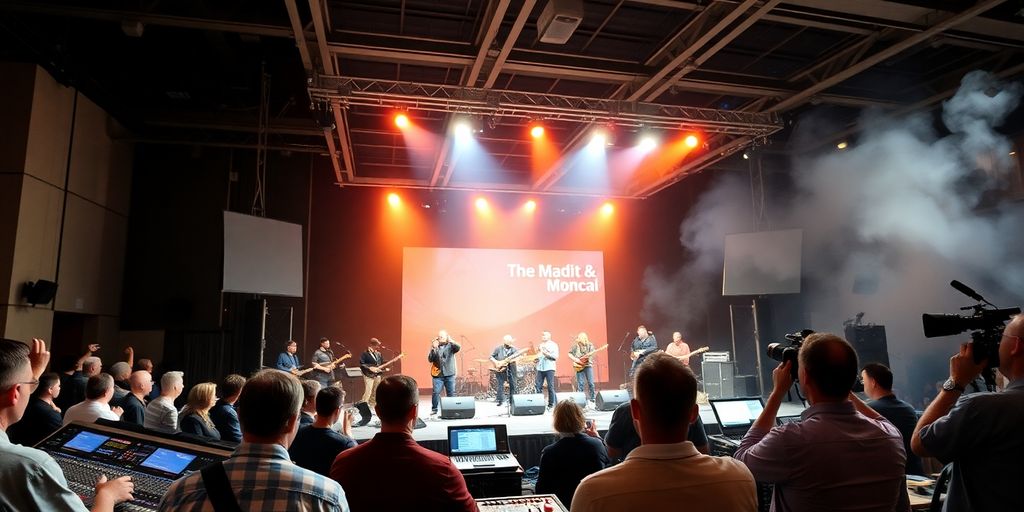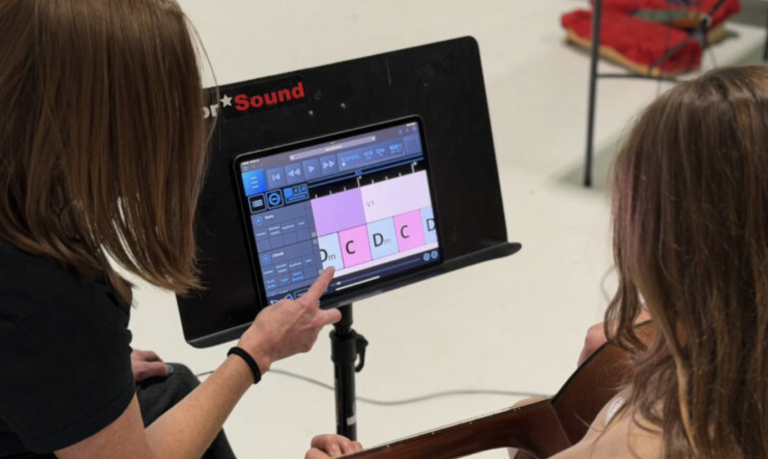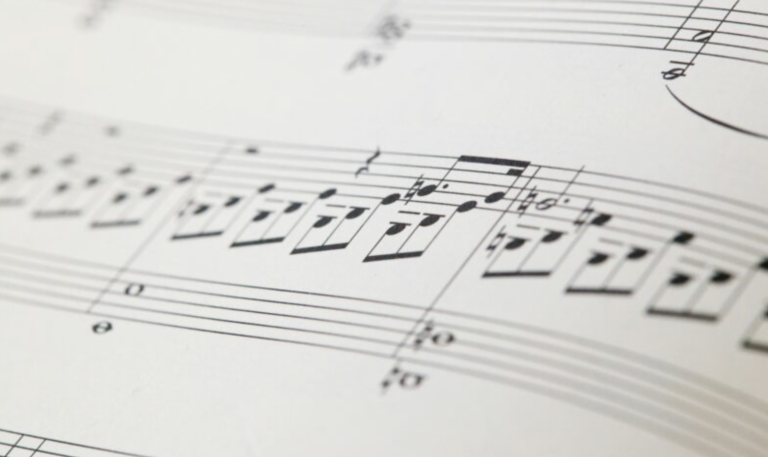
I’ve been looking at how small rules in the music world shape the hits we end up playing. Music industry conventions touch everything from song length to fan perks. You might not see it, but these behind-the-scenes moves are pulling all the strings in what lands on your playlist.
Key Takeaways
- Shorter tracks and new royalty splits in streaming services are changing which songs climb playlists.
- Music conferences now mix talks with hands-on workshops so writers and producers can meet and make music together.
- Fan subscription tiers, fan-made marketing plans, and sharing royalty models let listeners do more than just press play.
- Label mentors, indie funding routes, and broader distribution paths give new artists more ways to get their music out.
- Simple rules for song tags, recording quality, and licensing steps help tracks get heard in different countries.
Standardizing Streaming Practices Through Music Industry Conventions

Streaming has become the cornerstone of the modern music business, but it’s also created some interesting challenges. Industry conventions are now playing a big role in trying to standardize how things work in this new landscape. It’s not always a smooth process, but the goal is to make things fairer and more efficient for everyone involved.
Shortening Tracks For Playlist Feasibility
One noticeable trend is the shortening of songs. This isn’t necessarily an artistic choice, but more of a strategic move to increase playlist inclusion. Shorter songs mean more streams per listening session, which can boost an artist’s visibility and revenue. It’s a bit of a trade-off between artistic expression and playing the streaming game. This has led to discussions at conventions about the ethics and long-term impact of prioritizing brevity over creative depth.
Streamlining Royalty Distribution Models
Royalty distribution is a complex beast, and streaming has only made it more complicated. Conventions are trying to create more transparent and equitable royalty distribution models. The current system often favors major labels and established artists, leaving independent creators with a smaller piece of the pie. Discussions revolve around usage-based models, direct artist payments, and ways to combat fraud and manipulation within the streaming ecosystem.
Embedding Social Metrics In Release Strategies
Social media is now an integral part of music promotion. Conventions are exploring how to effectively embed social metrics into release strategies. This includes tracking engagement, identifying viral trends, and using data to target specific audiences. However, there’s also a growing awareness of the potential downsides, such as the pressure to create content solely for social media and the risk of burnout for artists. It’s about finding a balance between leveraging social media and maintaining artistic integrity.
The music industry is at a crossroads. Streaming has opened up new opportunities, but it’s also created new challenges. Conventions are a vital space for stakeholders to come together, discuss these issues, and work towards solutions that benefit everyone involved. It’s not about stifling creativity, but about creating a sustainable and equitable ecosystem for music in the digital age.
Leveraging Conference Platforms To Spark Creative Collaboration
Music industry conventions aren’t just about deals and data anymore. They’re becoming crucial hubs for sparking actual creative magic. Think of them as giant, real-world remix stations where artists, producers, and tech innovators collide. It’s not just about networking; it’s about actively making music better, together.
Curated Masterclasses With Industry Pioneers
These aren’t your average lectures. Imagine sitting in a room with a Grammy-winning producer as they break down their hit song, layer by layer. Or a tech guru showing you how to use AI to generate unique sounds. These masterclasses offer direct access to knowledge and techniques you won’t find anywhere else. It’s like getting a backstage pass to the minds of the industry’s best. For example, at top music conferences, you can find these types of opportunities.
Interactive Songwriting Workshops
Forget staring at a blank page alone. These workshops throw you into a room with other songwriters, producers, and artists to create something new, right then and there. It’s a pressure cooker of creativity, forcing you to think on your feet and collaborate in real-time. You might walk in with one idea and leave with a completely different song, shaped by the input of people from all over the world. It’s a great way to break out of your comfort zone and learn new approaches to songwriting.
Networking Frameworks For Global Creators
Conventions are notorious for awkward small talk, but the best ones are designing ways to make meaningful connections easier. Speed-dating for musicians? Maybe. Structured feedback sessions? Definitely. The goal is to move beyond surface-level introductions and create opportunities for real collaboration. It’s about building a global network of creators who can support and inspire each other, long after the convention is over.
The real value of these conventions isn’t just the information you get, it’s the relationships you build. You never know who you’ll meet or what kind of project might come out of a chance encounter. It’s about planting seeds and seeing what grows.
Empowering Fans With Convention-Driven Engagement Models

It’s not just about the music anymore; it’s about the connection. Music industry conventions are starting to recognize that fans aren’t just passive listeners. They’re active participants, and the industry is slowly figuring out how to tap into that energy. Conventions are becoming hubs for developing new ways to engage fans and turn them into invested members of an artist’s world.
Superfan Subscription Tiers
Forget the basic streaming model. We’re talking about going deep with superfan subscriptions. These aren’t your average monthly fees; they’re tiered systems that offer increasing levels of access and perks. Think exclusive content, behind-the-scenes glimpses, early access to tickets, and even personalized merchandise. It’s about rewarding the most dedicated fans and making them feel like they’re truly part of the inner circle. A direct-to-fan platform can help artists manage these tiers effectively.
Crowdsourced Marketing Playbooks
Why rely solely on a marketing team when you have a built-in army of passionate fans? Conventions are exploring ways to involve fans in the marketing process. This could mean running contests where fans create content to promote a new release, or even giving them a say in the album artwork. It’s about tapping into their creativity and enthusiasm to generate buzz and build a sense of ownership.
Fan-Powered Royalty Systems
This is where things get really interesting. Imagine a system where fans can directly contribute to an artist’s income stream, not just through purchases, but through their engagement. Maybe a portion of streaming royalties is allocated based on how actively a fan interacts with an artist’s content. It’s a radical idea, but it could revolutionize the way artists are compensated and incentivize deeper fan engagement. Building fandom is about the journey, not the destination, and this could be a great way to reward the most loyal fans.
The shift towards fan-powered models is a recognition that the traditional music industry is evolving. It’s no longer enough to simply create music and hope people listen. Artists need to build communities, foster relationships, and find new ways to reward their most dedicated supporters. Conventions are playing a key role in shaping this new landscape.
Transforming Artist Development In The Age Of Convention Networks
It used to be that breaking into the music industry meant catching a lucky break, maybe getting discovered at a local gig or sending demos to countless labels. Now, the landscape is shifting. Music industry conventions are becoming crucial hubs for artist development, offering structured pathways and resources that were previously inaccessible. These networks are changing how artists connect, learn, and grow.
Long Tail Distribution Gateways
Conventions are creating new avenues for artists to reach niche audiences. Forget relying solely on major labels to push your music. These events often feature platforms and workshops focused on:
- Direct-to-fan sales strategies
- Independent music licensing
- Utilizing streaming services for targeted promotion
This means artists can build sustainable careers by connecting directly with their fans and diffuse innovation, bypassing traditional gatekeepers.
Mentorship Protocols From Label Executives
Imagine getting advice from someone who’s been there, done that. Many conventions now offer mentorship programs connecting emerging artists with experienced label executives, producers, and songwriters. These mentorships provide:
- Personalized feedback on music
- Guidance on career strategy
- Networking opportunities with industry professionals
It’s like having an insider’s guide to navigating the complex world of music.
Independent Funding Circuits
Securing funding is a constant challenge for independent artists. Conventions are stepping up by creating spaces for artists to connect with investors and explore alternative funding models. This includes:
- Crowdfunding workshops
- Pitch sessions with venture capitalists
- Information on grants and artist support programs
Conventions are democratizing access to capital, allowing artists to maintain creative control while building their careers. This shift empowers artists to pursue their vision without compromising their artistic integrity.
Here’s a simple table showing the potential impact of convention-driven funding:
| Funding Source | Average Funding Amount | Accessibility | Control |
|---|---|---|---|
| Traditional Label | $50,000+ | Low | Low |
| Convention Networks | $5,000 – $20,000 | High | High |
Fostering Innovation In Music Production Standards
Music industry conventions aren’t just about business deals and networking; they’re also becoming hotbeds for pushing the boundaries of music production itself. It’s interesting to see how these gatherings are shaping the sound of tomorrow’s hits.
AI Integration Guidelines
AI is changing music production, and conventions are where people are trying to figure out how to use it right. The discussions revolve around ethical considerations, creative workflows, and how to avoid AI-generated music from sounding generic. It’s a mix of excitement and caution, with everyone trying to find the sweet spot.
High-Fidelity Recording Specifications
With streaming services now supporting higher quality audio, there’s a renewed focus on recording quality. Conventions are hosting workshops and panels on the latest recording techniques, microphone technology, and mastering processes. The goal is to make sure new music sounds amazing on any device, from earbuds to high-end sound systems.
Cross-Genre Collaboration Standards
Genre boundaries are blurring, and conventions are helping to speed up the process. They’re creating spaces for artists from different backgrounds to connect and experiment. This can lead to some really interesting and unexpected musical combinations. Here’s what I’ve noticed:
- More producers are fluent in multiple genres.
- Artists are actively seeking out collaborators from different scenes.
- Record labels are more open to signing cross-genre projects.
It’s not just about mashing genres together randomly. It’s about finding common ground and creating something new and exciting. The best cross-genre collaborations feel organic and authentic, not forced or gimmicky.
I think that’s pretty cool.
Globalizing Hit Potential With Unified Industry Conventions
It’s not enough to make a hit anymore; you have to make a global hit. And that means everyone needs to be on the same page, from metadata to marketing. Music industry conventions are playing a big part in making this happen. They’re creating common standards that help music travel across borders more easily.
Standardized Metadata Practices
Metadata is like the DNA of a song in the digital world. If it’s messed up, the song can get lost or misidentified. Conventions are pushing for everyone to use the same formats and terms. This makes it easier for streaming services and other platforms to track royalties and make sure artists get paid correctly, no matter where the song is played. Think of it as a universal language for music data.
International Licensing Roadmaps
Navigating music licensing in different countries can feel like walking through a minefield. Each territory has its own rules and regulations. Conventions are working to create clear roadmaps that explain how to get the rights you need to release music internationally. This includes:
- Simplified guides for copyright laws in major markets.
- Templates for licensing agreements.
- Workshops on negotiating international deals.
Cross-Border Promotion Conventions
Getting your music heard in another country requires more than just translating the lyrics. It means understanding the local culture and music scene. Conventions are helping to create strategies for cross-border promotion that take these factors into account.
Conventions are also helping to build relationships between industry professionals from different countries. This can lead to collaborations, partnerships, and new opportunities for artists to reach a global audience.
This includes things like:
- Sharing best practices for social media marketing in different regions.
- Creating networks of international radio promoters.
- Organizing showcases for artists to perform in front of international audiences.
## Conclusion
Honestly, it’s wild how each little tweak—shorter tracks, viral hooks, new pay splits—stacks up. Together, they nudge how we all listen and share. Today’s oddball app or weird playlist formula might be the playground for tomorrow’s smash hit. So don’t laugh off those small changes you catch in the feed. They’re setting the beat for what’s coming next.
Frequently Asked Questions
What are music industry conventions?
Music industry conventions are shared rules and habits that people in the music business follow. They help artists, labels, and platforms work the same way around the world.
Why are songs getting shorter?
Playlists often pick shorter songs to keep listeners tuned in. That makes artists trim their tracks to fit the average listener’s attention span.
How can fans help share royalties?
Some new systems let fans fund their favorite artists directly. Fans pay a small fee or join a tiered club, and part of that money goes straight to the artist.
How do music conferences help artists?
Conferences bring artists, producers, and marketers together. They offer classes, workshops, and networking time so artists can learn new skills and make useful contacts.
What is metadata, and why does it matter?
Metadata is the info attached to a song, like artist name, genre, and release date. It helps streaming services and stores find and sort music correctly.
What are international licensing roadmaps?
These roadmaps are step-by-step guides to getting permission to use music in other countries. They explain paperwork, fees, and legal steps so artists can reach a global audience.








